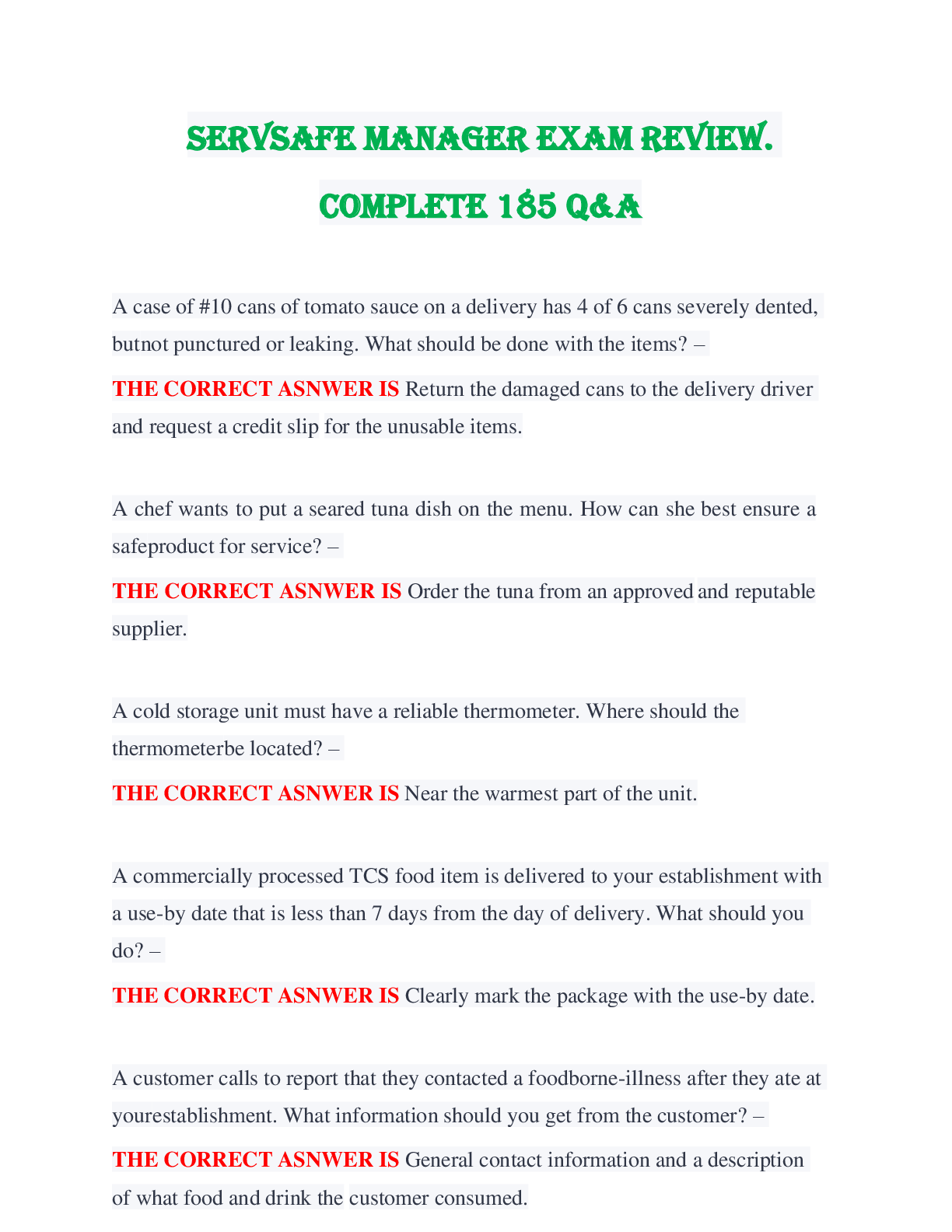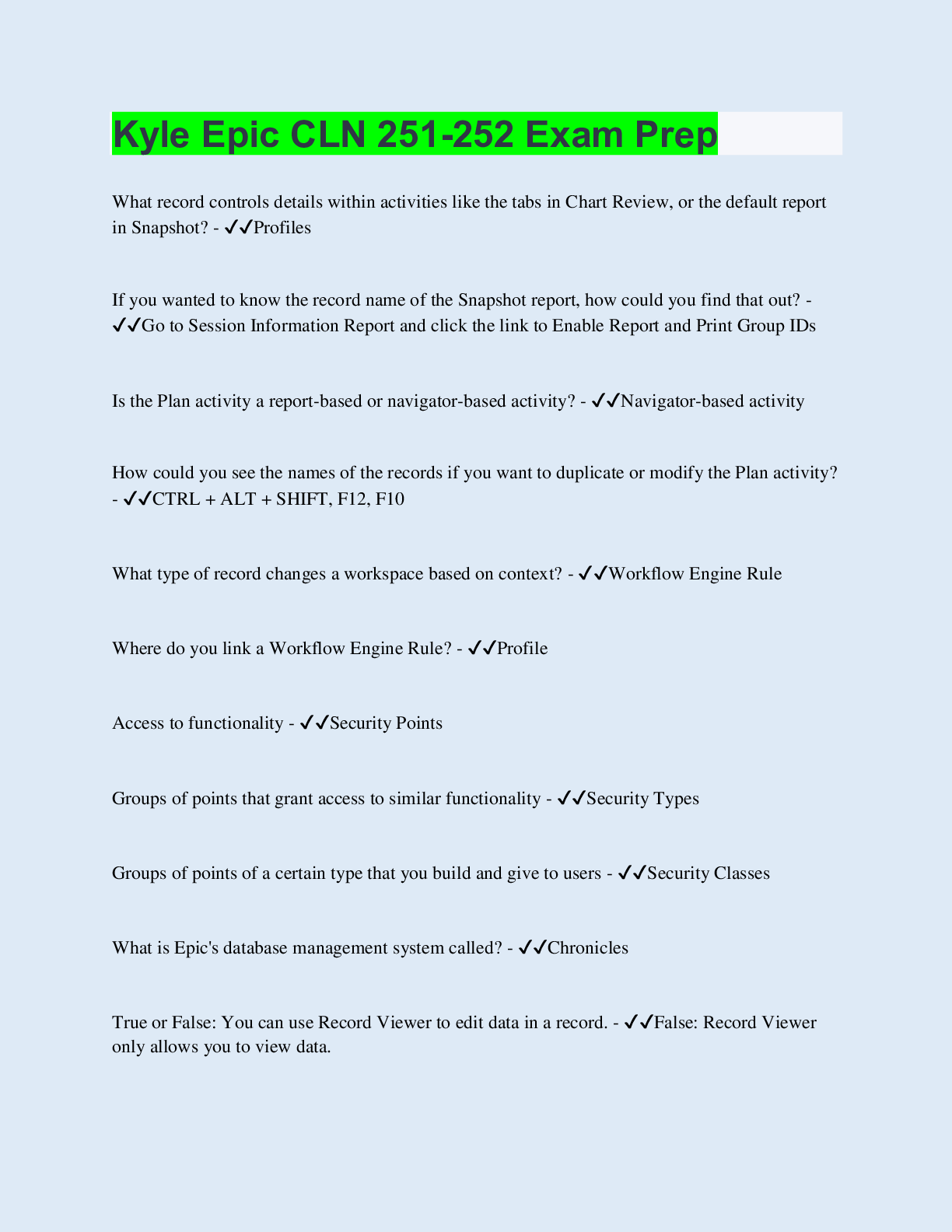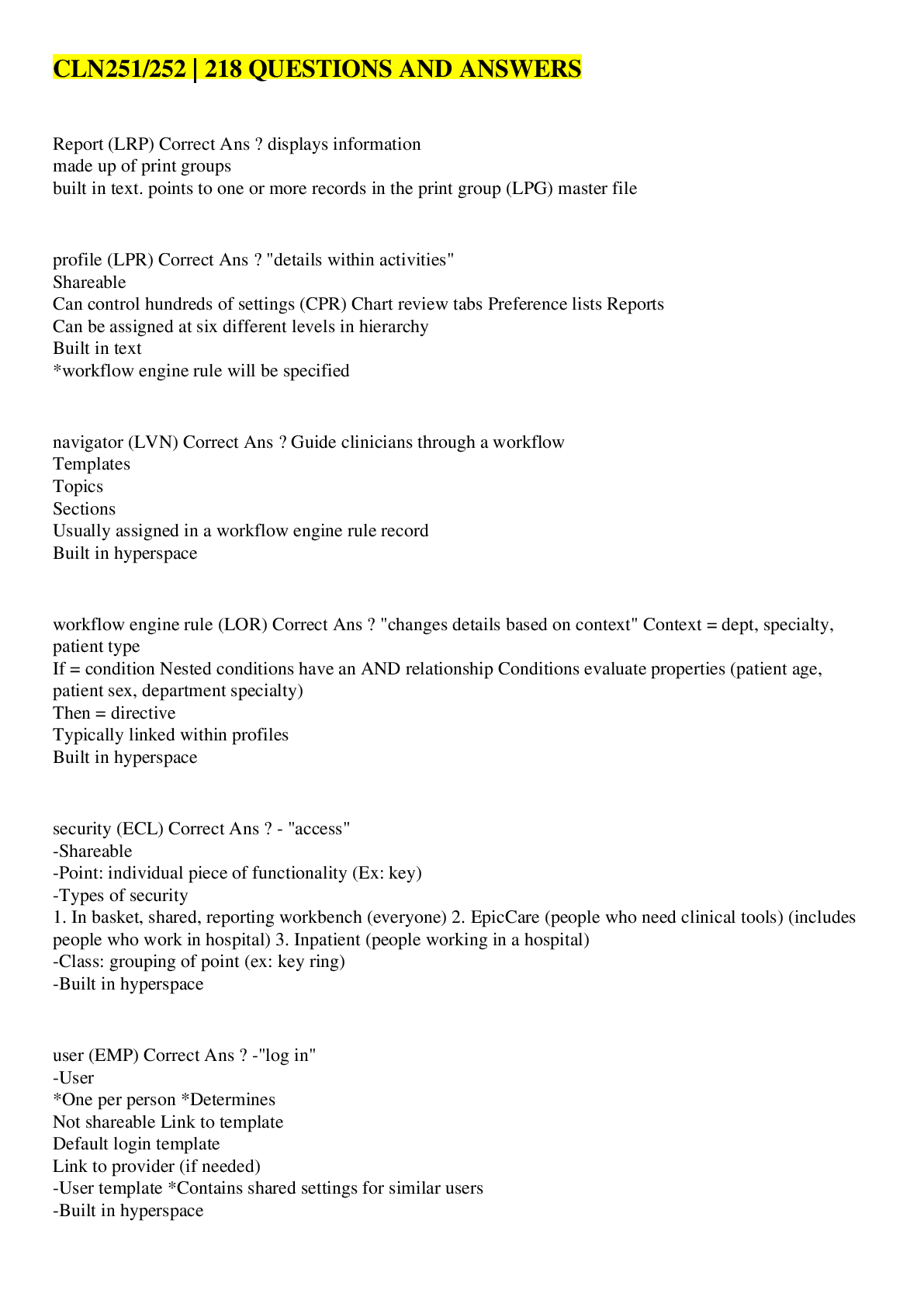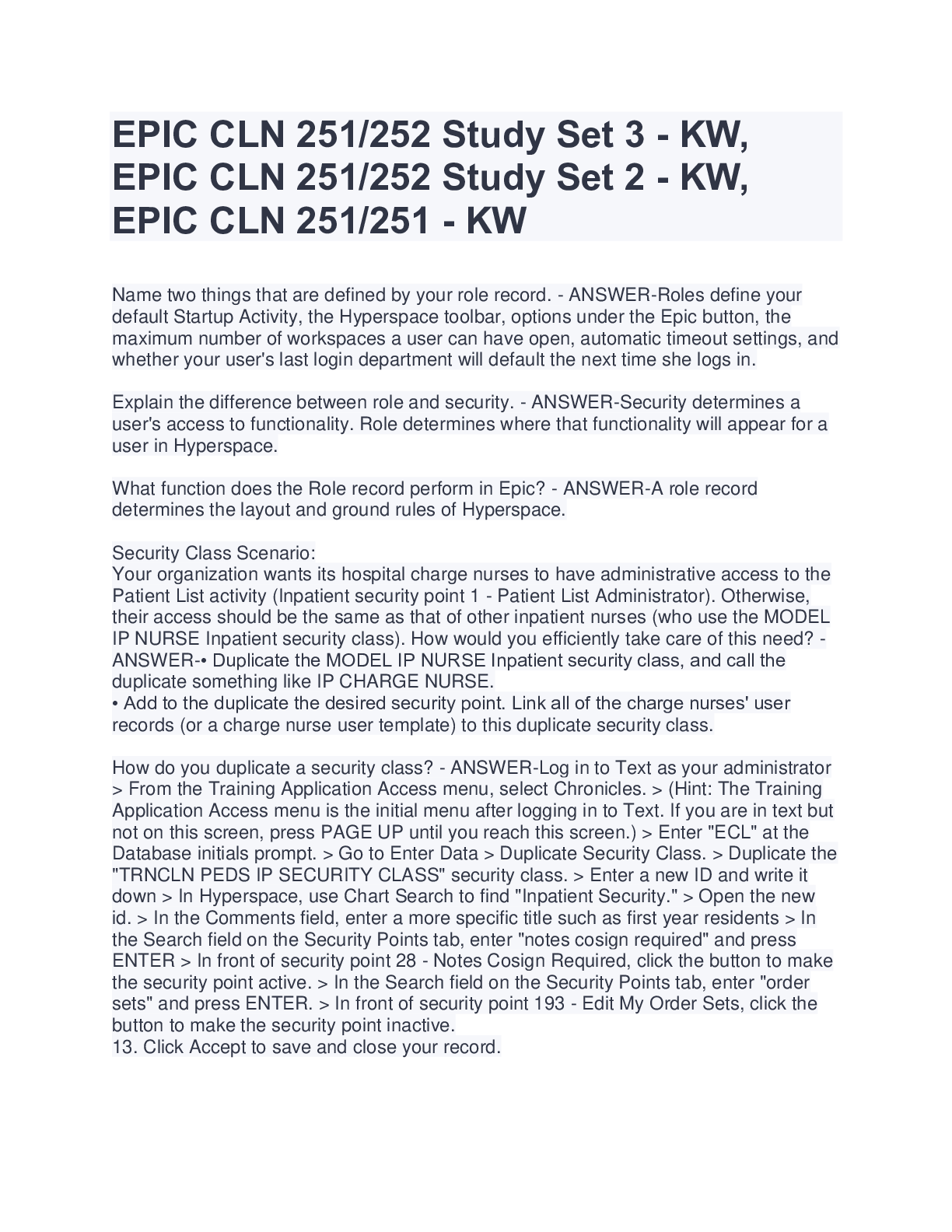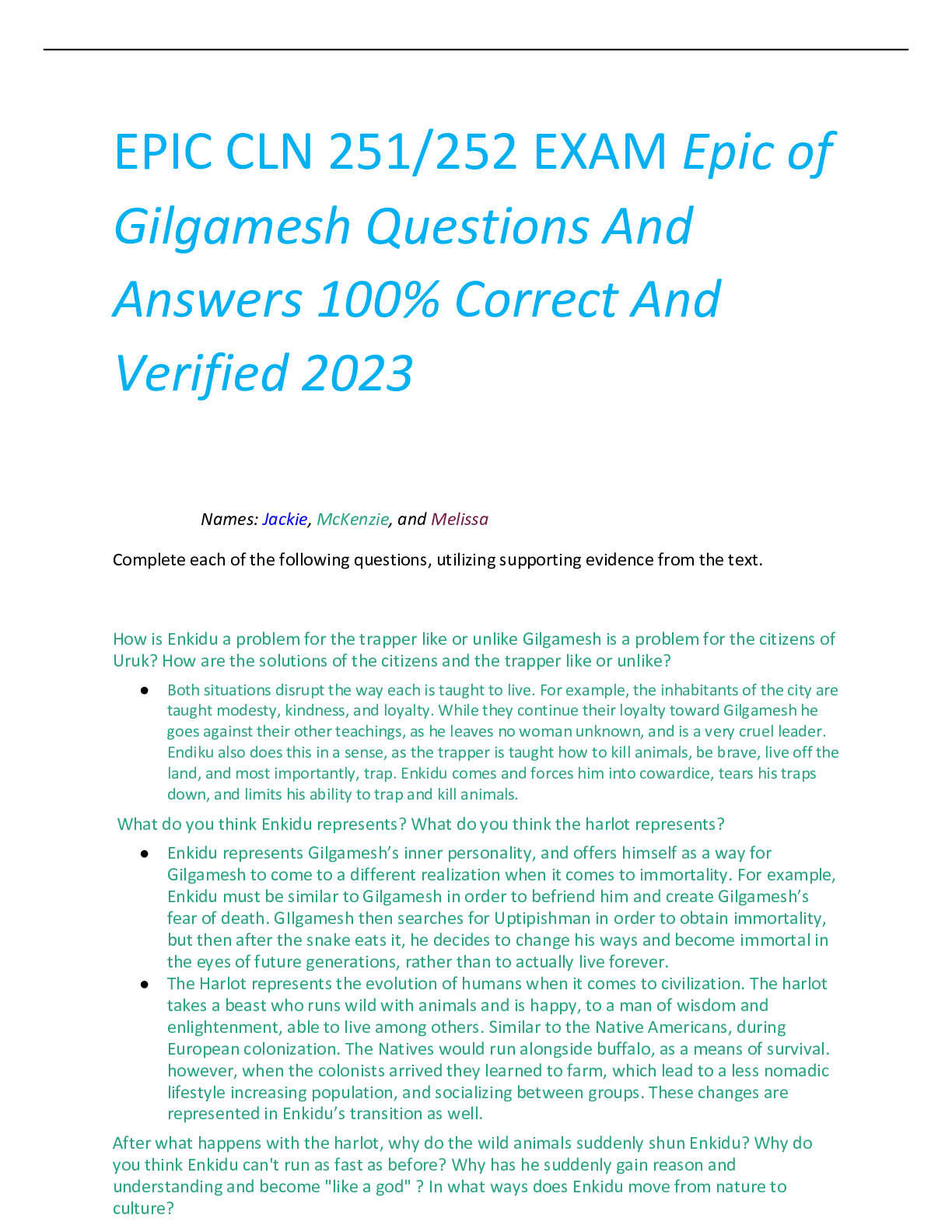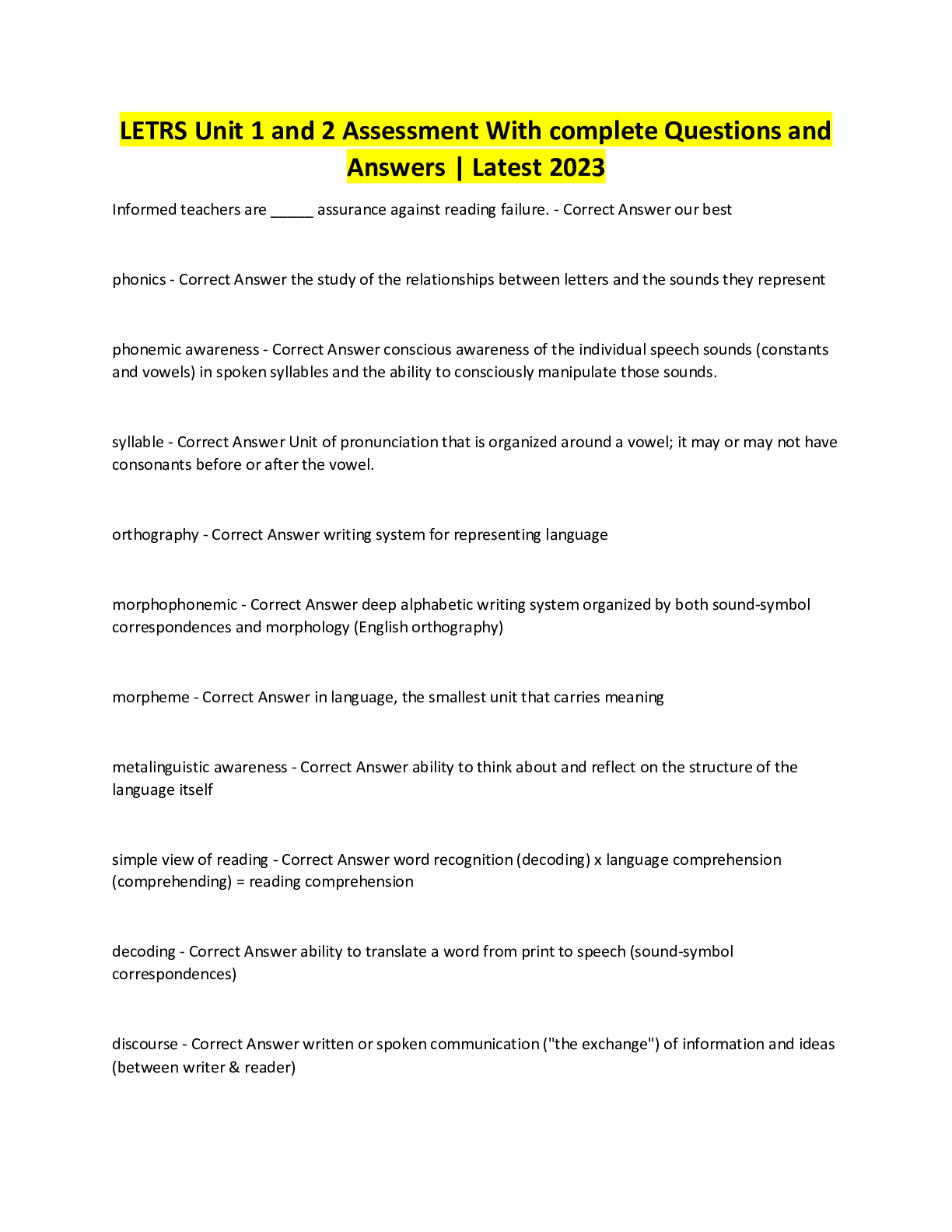Health Care > EXAM > Exam 5 med surg 2 QUESTIONS AND ANSWERS 100% CORRECT (All)
Exam 5 med surg 2 QUESTIONS AND ANSWERS 100% CORRECT
Document Content and Description Below
Exam 5 med surg 2 QUESTIONS AND ANSWERS 100% CORRECT The nurse assessing a patient with vomiting and diarrhea observes that the urine is scant and concentrated. The nurse explains that the compensa... tory reabsorption of water is controlled by: a. osmoreceptors in the hypothalamus. b. antidiuretic hormone in the posterior pituitary. c. baroreceptors in the carotid sinus. d. insulin from the pancreas. Correct Answer: ANS: B The antidiuretic hormone controls how much water leaves the body by reabsorbing water in the renal tubules. The nurse uses a picture to show how ions equalize their concentration by the passive transport process of: a. osmosis. b. filtration. c. titration. d. diffusion. Correct Answer: ANS: D Diffusion is the process by which substances move back and forth across compartment membranes until they are equally divided. The nurse explains that the active transport process that is able to move sodium and potassium into or out of cells is: a. filtration. b. sodium pump. c. diffusion. d. osmosis. Correct Answer: ANS: B The sodium pump is the mechanism by which sodium and potassium are moved into or out of cells regardless of the concentration. When the nurse assesses a potassium level of 2.9 mEq/L in the patient with vomiting and diarrhea, the nurse will be alert for: a. excessive urinary output. b. abdominal distention. c. increased reflexes. d. hyperactive bowel sounds. Correct Answer: ANS: B A potassium level lower than 3.5 mEq/L results in reduced urine output, cardiac dysrhythmia, muscle weakness, abdominal pain and distention, paralytic ileus, lethargy, and confusion. Because the 80-year-old patient is prone to dehydration related to the age-related change of decreased thirst and kidney function, the nurse monitors for the earliest sign of dehydration, which is: a. reduced skin turgor. b. constipation. c. increased temperature. d. thirst. Correct Answer: ANS: B Constipation is the best early indicator of dehydration in the older adult. Older adults have age-related poor skin turgor. Increased temperature and thirst are later signs of dehydration. To help prevent respiratory acidosis in a young person with asthma, the nurse would encourage: a. deep-breathing exercises every 2 hours. b. drinking 8 ounces of fluid every 4 hours. c. ambulating for 15 minutes twice a day. d. sleeping with the head of the bed elevated 45 degrees. Correct Answer: ANS: A Deep breathing blows off CO2, which reduces the acid ions, thus preventing respiratory acidosis. Drinking fluids prevents dehydration and keeps secretions moist and thin, and sleeping with the head of the bed elevated will ease breathing and improve gas exchange. Ambulating 15 minutes twice a day does not have an impact on respiratory acidosis. The nurse can record that the compensatory mechanism for the correction of metabolic acidosis is in effect when the nurse observes: a. increased urinary output. b. reduced abdominal distention. c. Kussmaul's respirations. d. decreased blood pressure. Correct Answer: ANS: C Kussmaul's respirations, or deep and rapid respirations, are blowing off carbon dioxide to reduce an acidotic state. The nurse is assessing a patient with renal failure and notes fatigue, muscle cramps, confusion, and headache. The nurse will monitor the patient's _____ level. a. potassium b. sodium c. calcium d. chloride Correct Answer: ANS: B The patient is demonstrating signs and symptoms of hyponatremia; therefore, the nurse should assess the patient's sodium level. An 85-year-old patient was held NPO since midnight last night for diagnostic testing. The procedure is now complete at 10:00 AM. The nurse should: a. check urine for concentration every hour. b. measure urine output every 2 hours. c. assess urine for the presence of glucose. d. offer 4 ounces of water or juice every hour. Correct Answer: ANS: D Offering small amounts of fluid every hour will rehydrate the older adult without resorting to IV fluids. The older adult has very little fluid reserve and has lost the ability to concentrate the urine; consequently, a long period without fluid intake can cause dehydration. The nurse recommends that, in order to keep optimum flow through the urinary system, a person should have a minimum intake of _____ mL/day. a. 1000 to 1500 b. 2000 to 2500 c. 3000 to 3500 d. 4000 to 4500 Correct Answer: ANS: B Intake of a minimum of 2000 mL/day is adequate to maintain optimal flow through the urinary system. [Show More]
Last updated: 1 year ago
Preview 1 out of 35 pages
Instant download
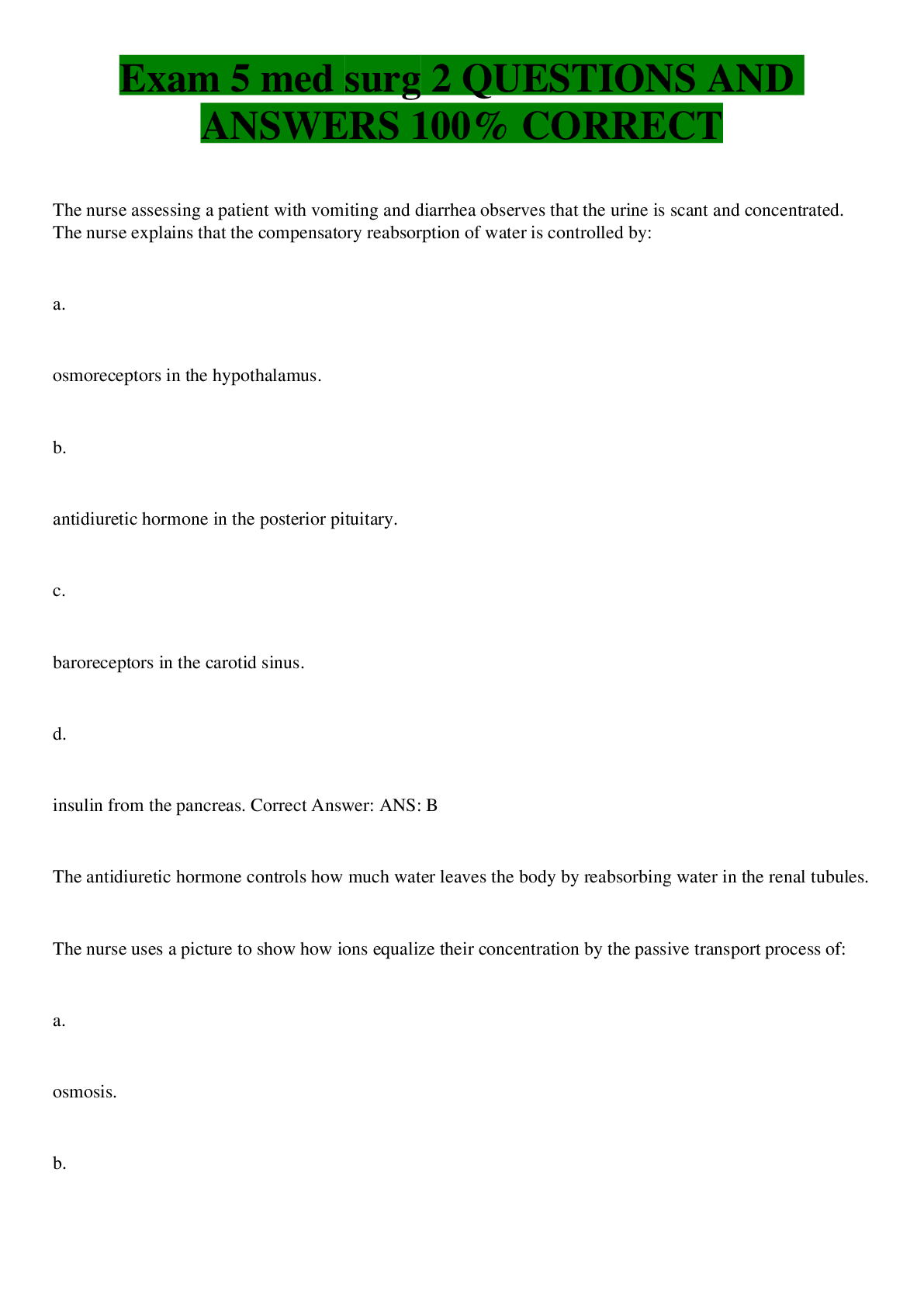
Instant download
Reviews( 0 )
Document information
Connected school, study & course
About the document
Uploaded On
Sep 19, 2022
Number of pages
35
Written in
Additional information
This document has been written for:
Uploaded
Sep 19, 2022
Downloads
0
Views
24

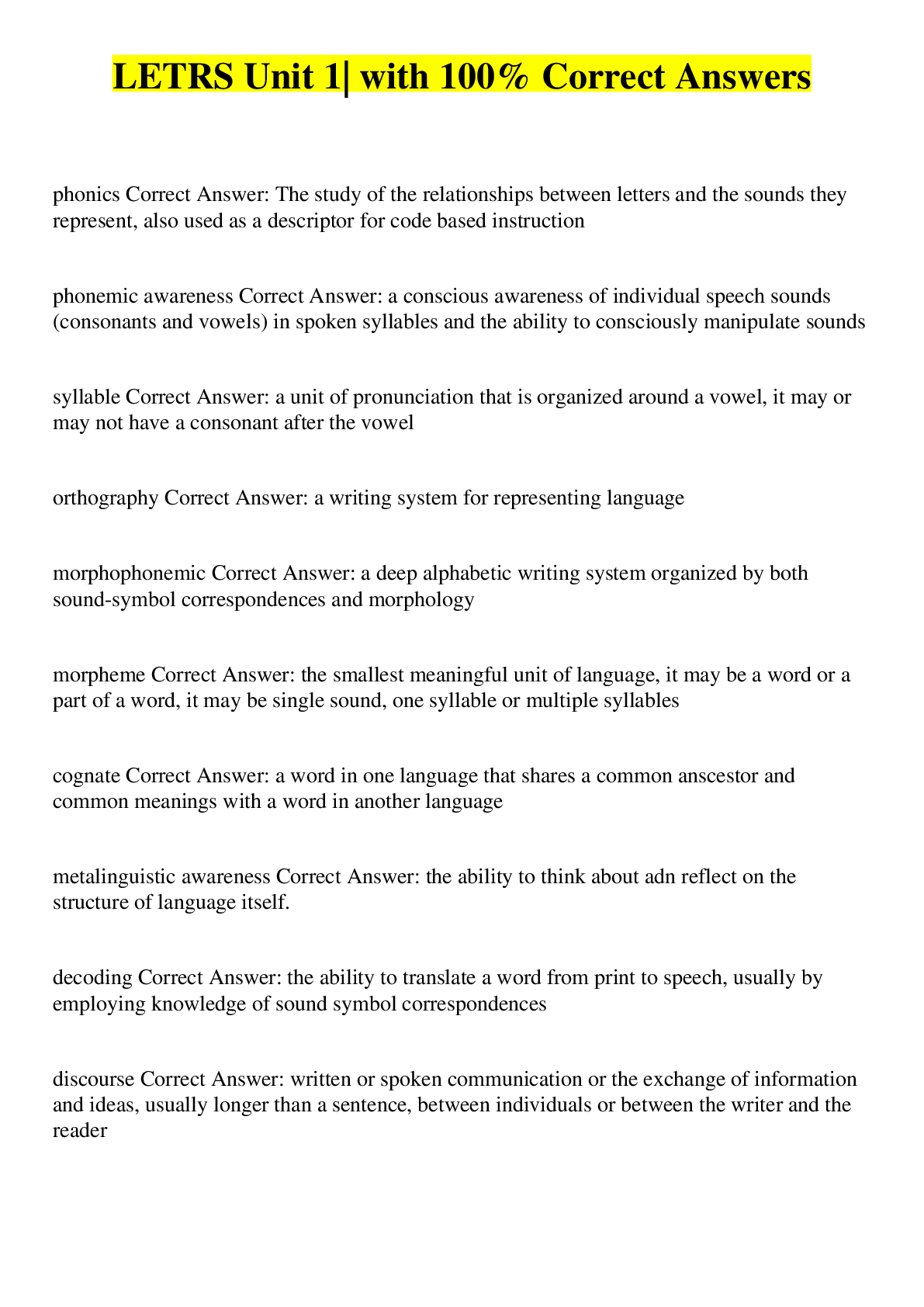
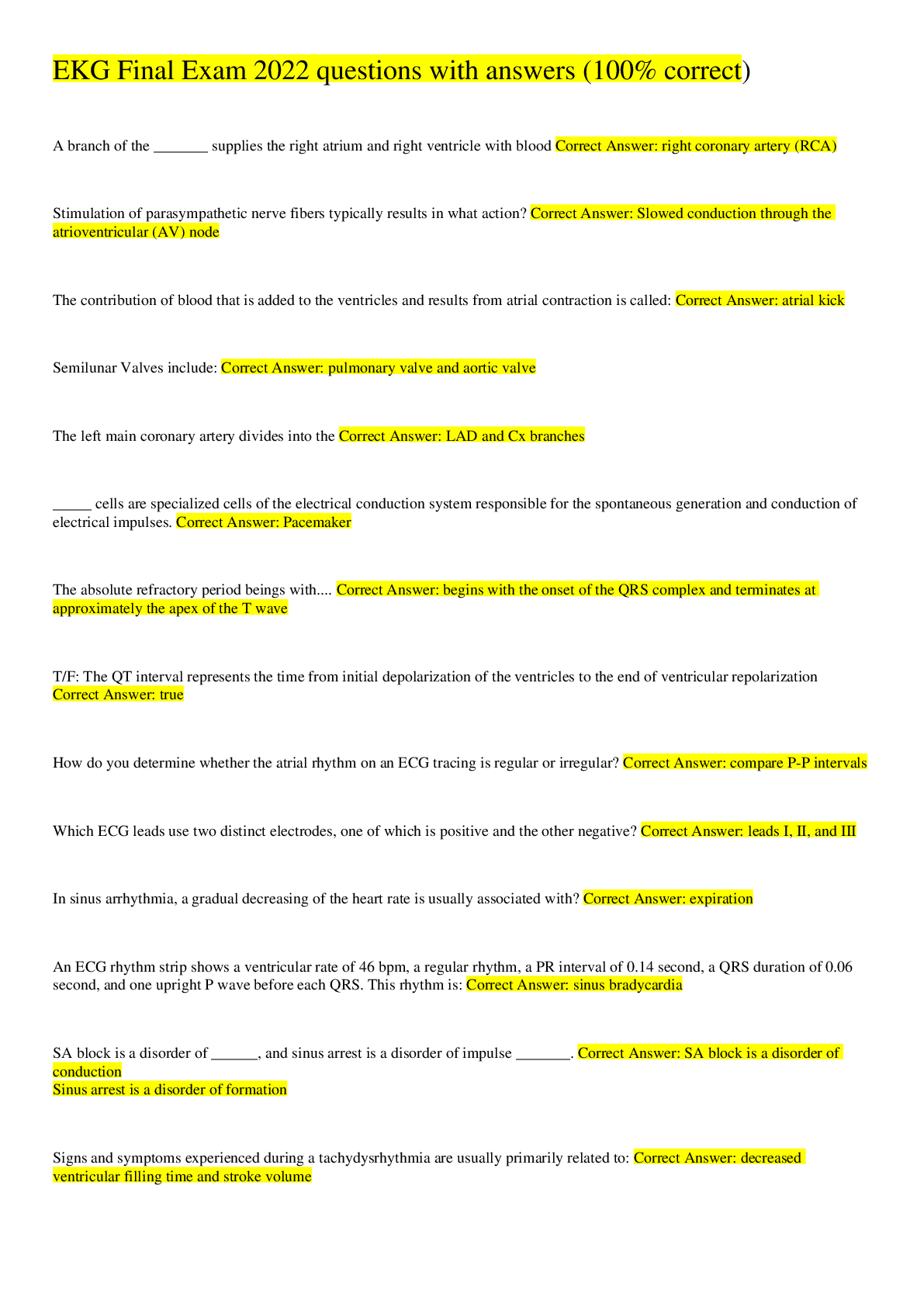
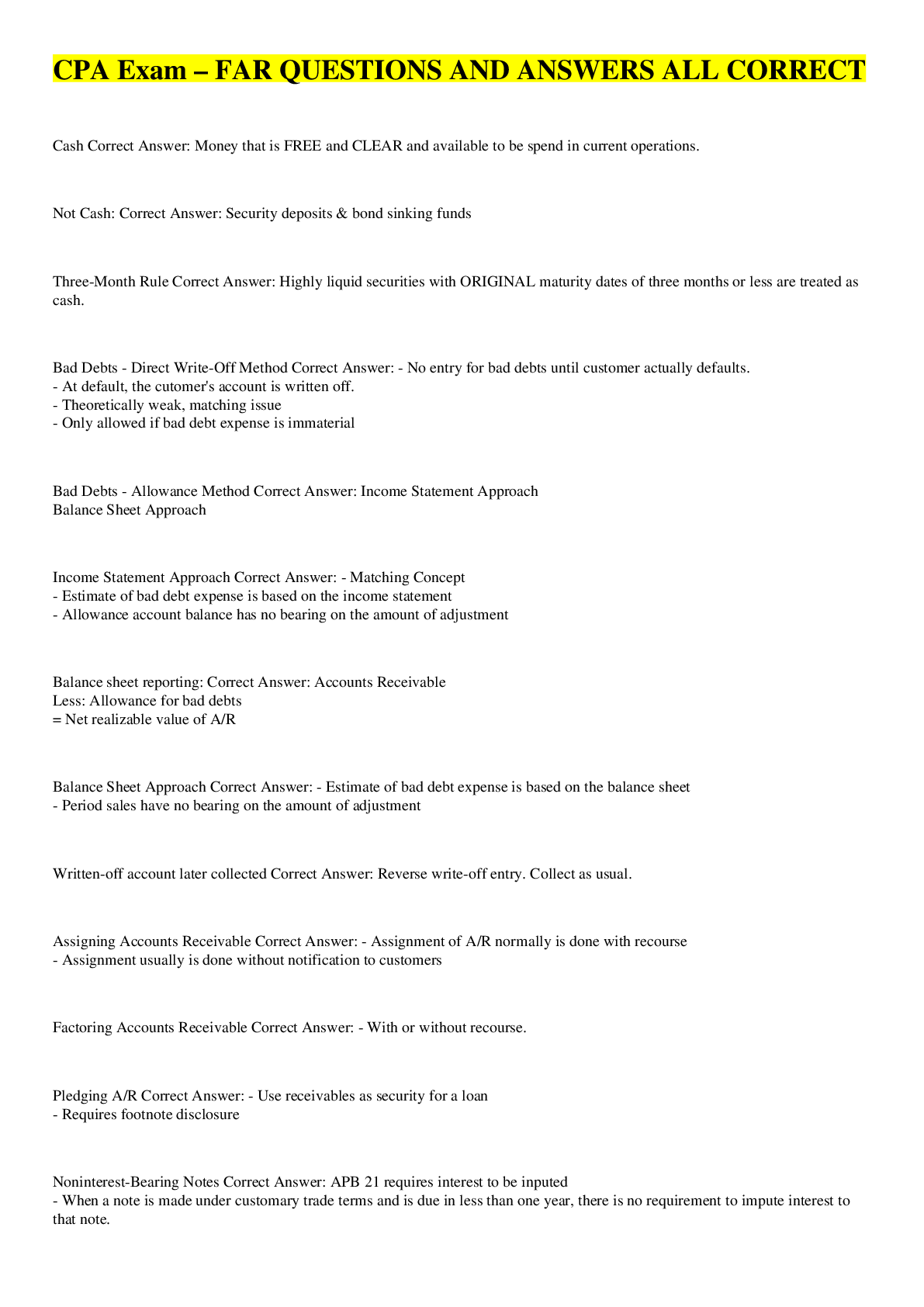
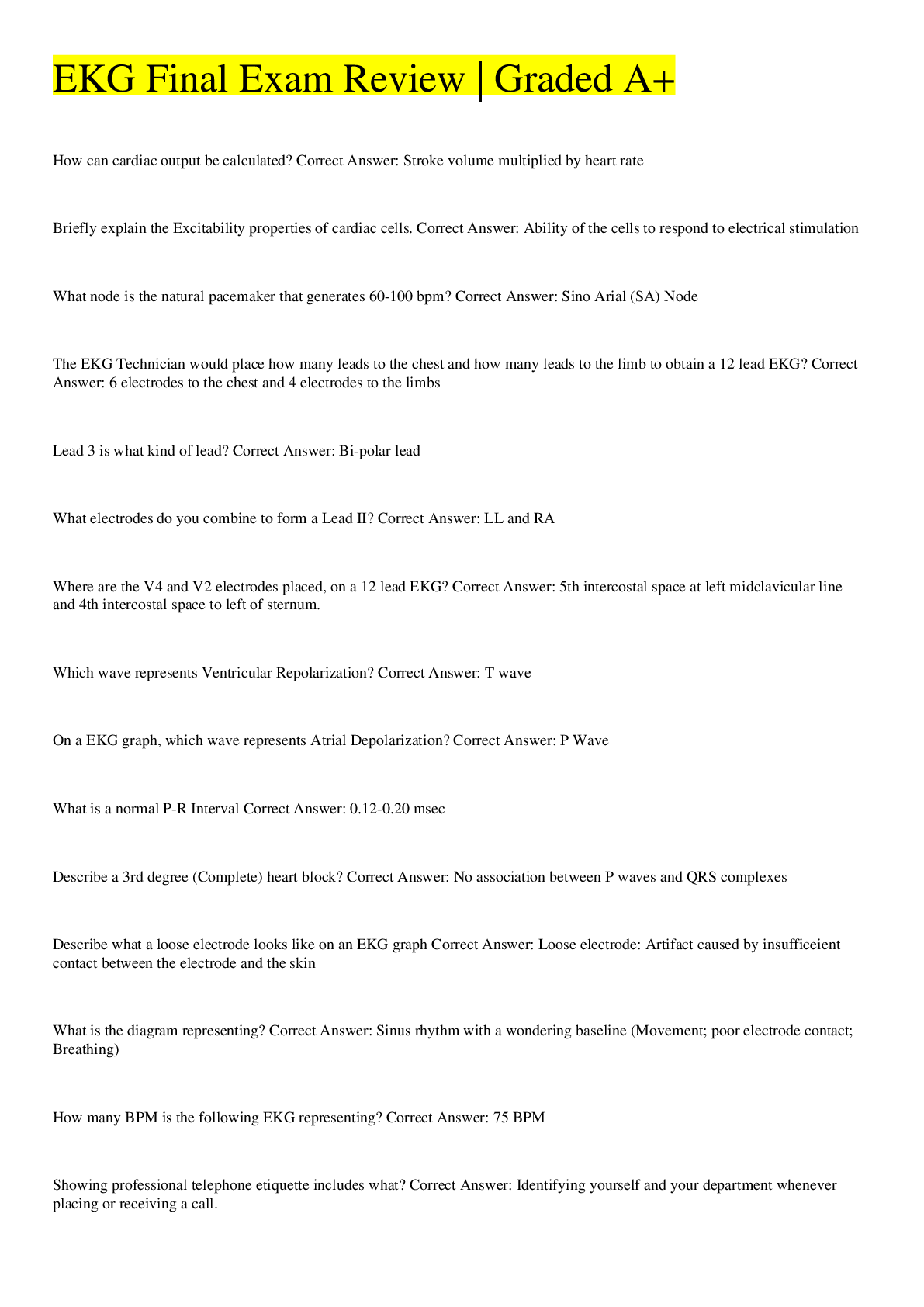
.png)
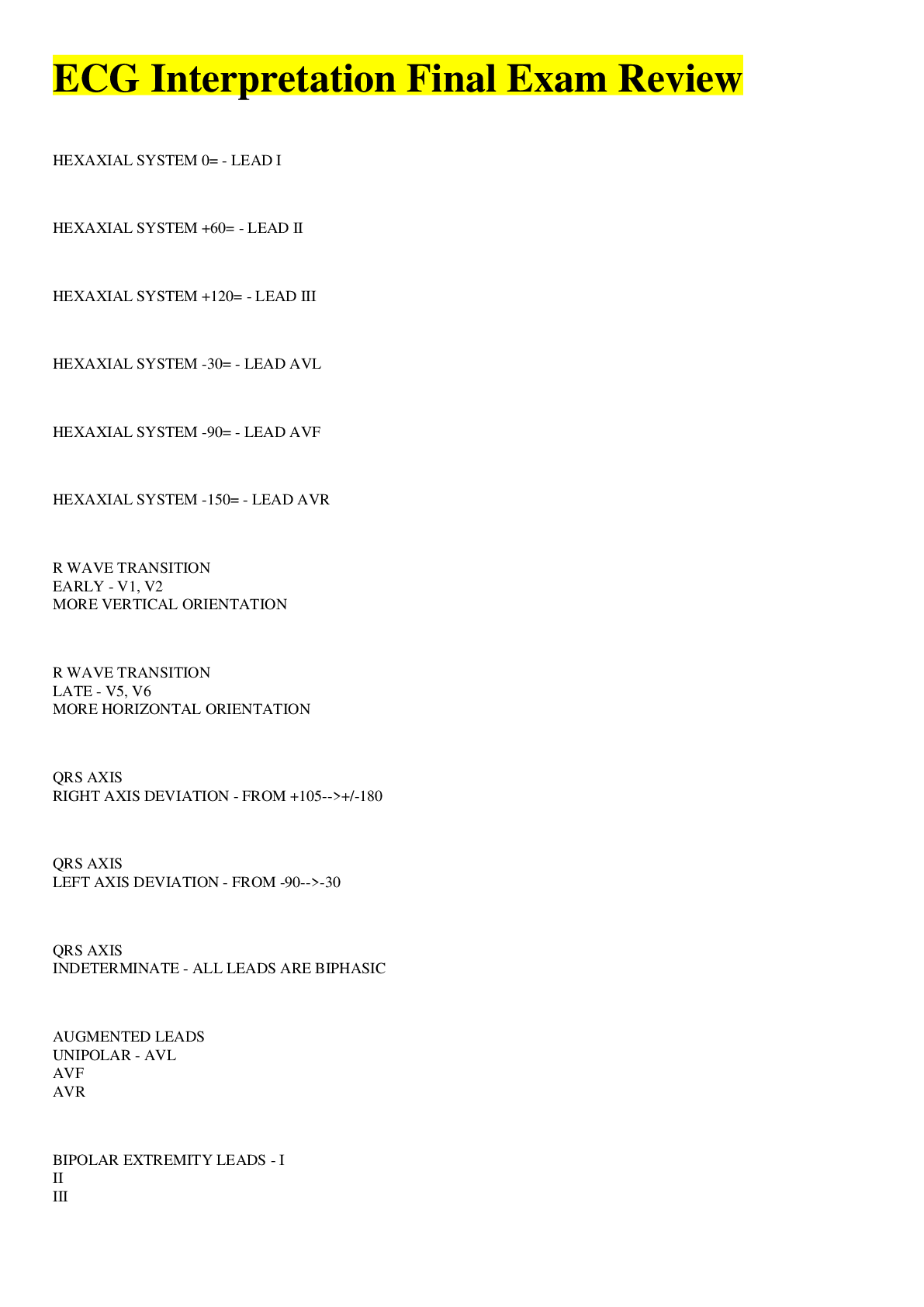
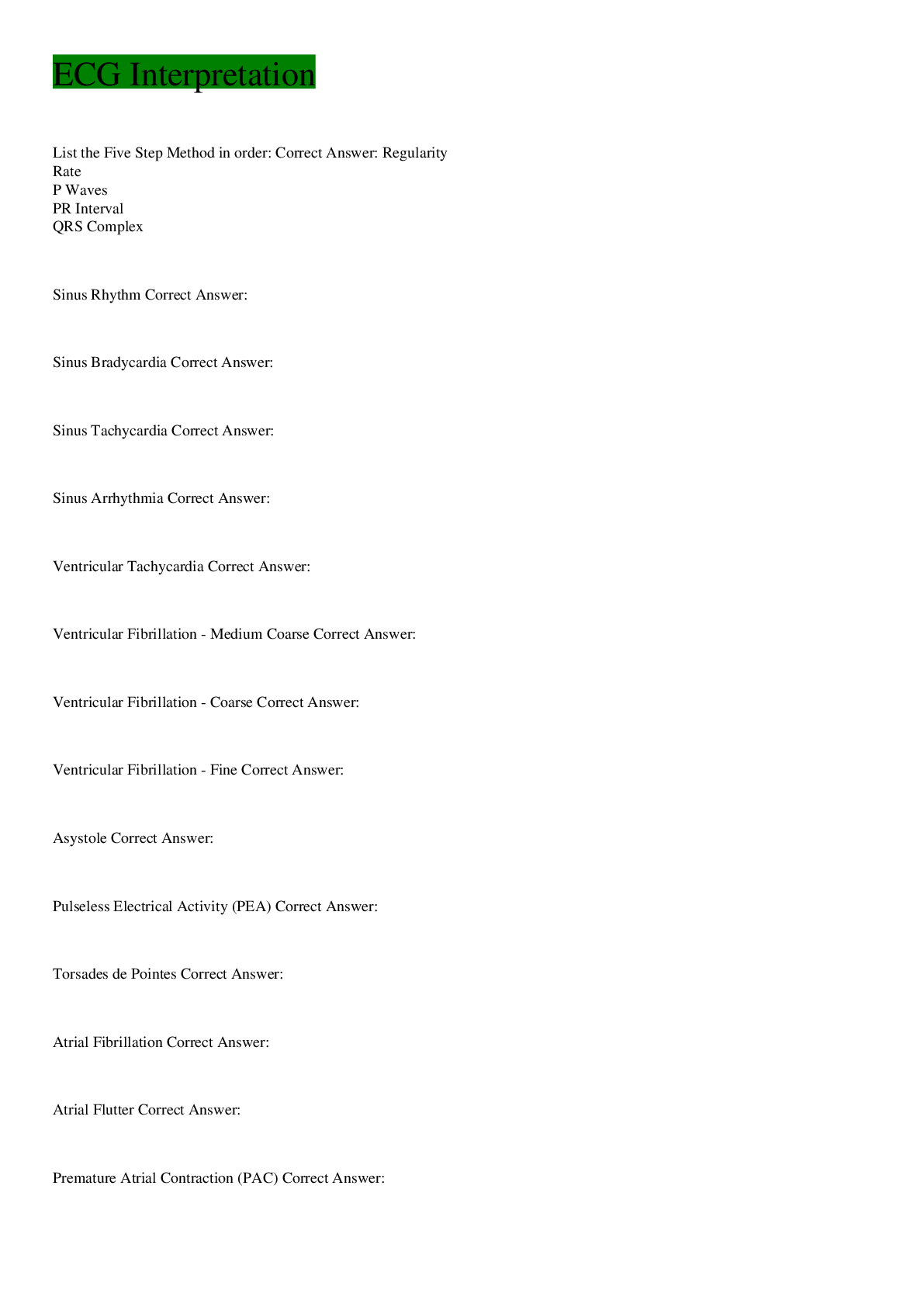
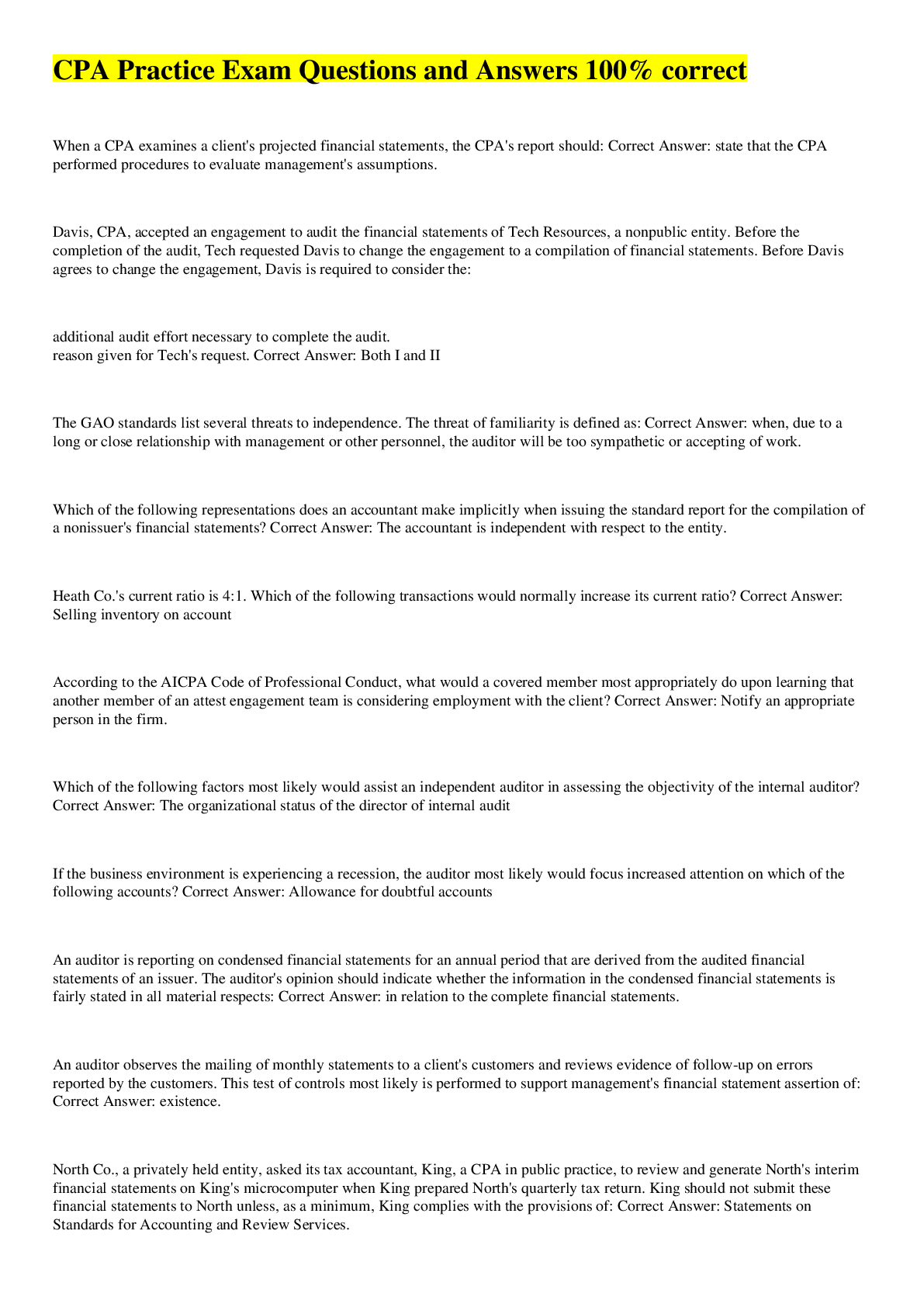
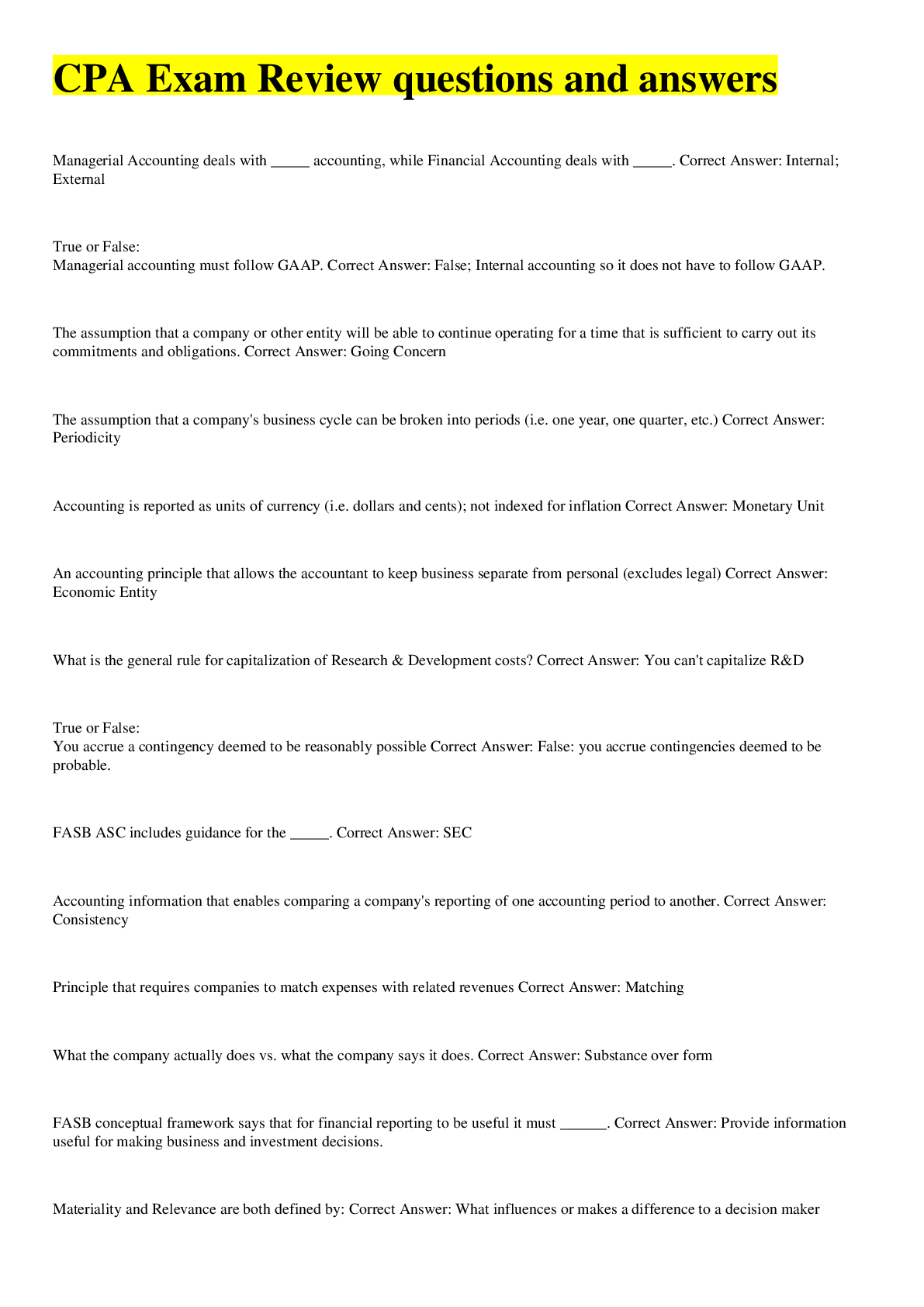
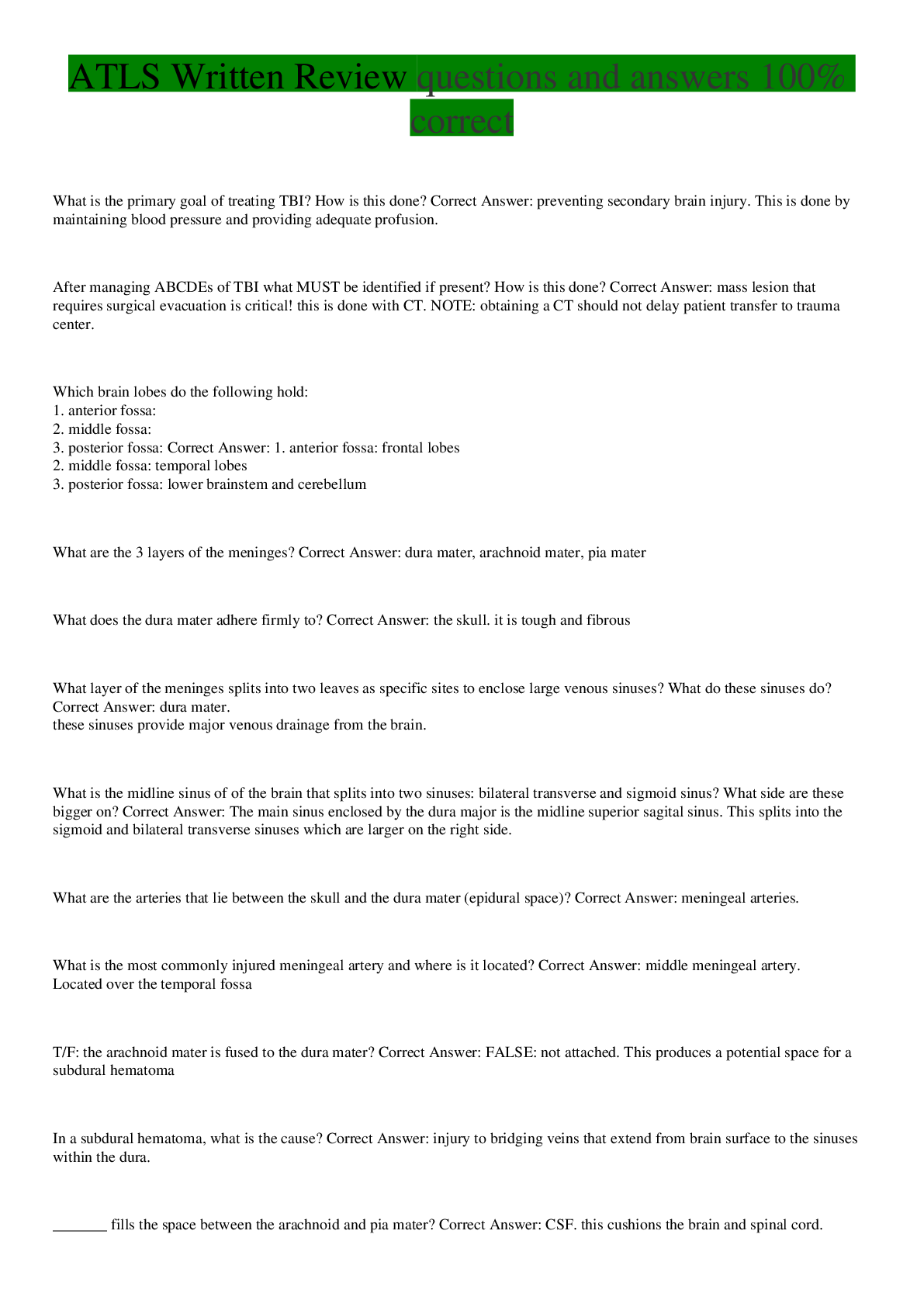
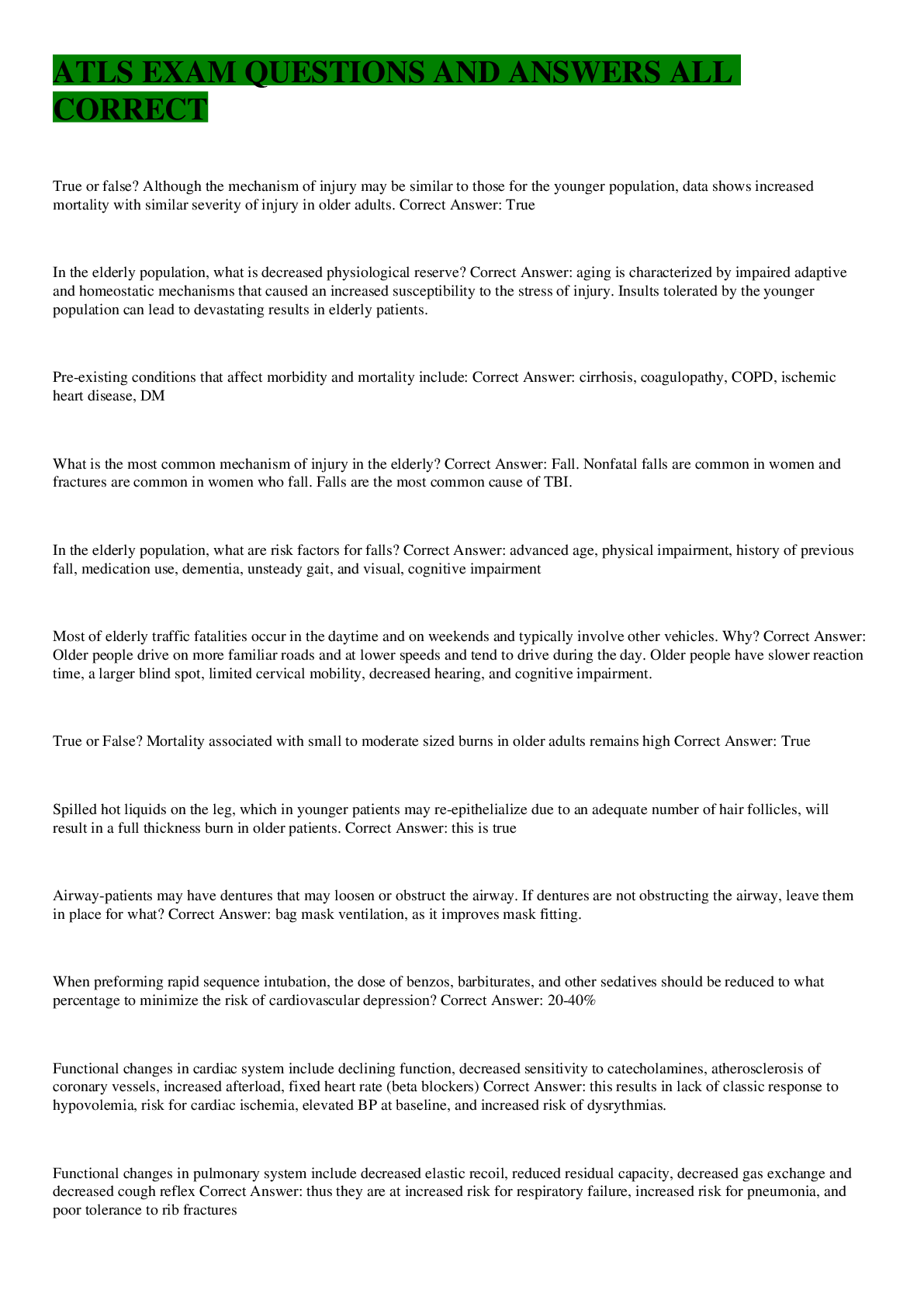

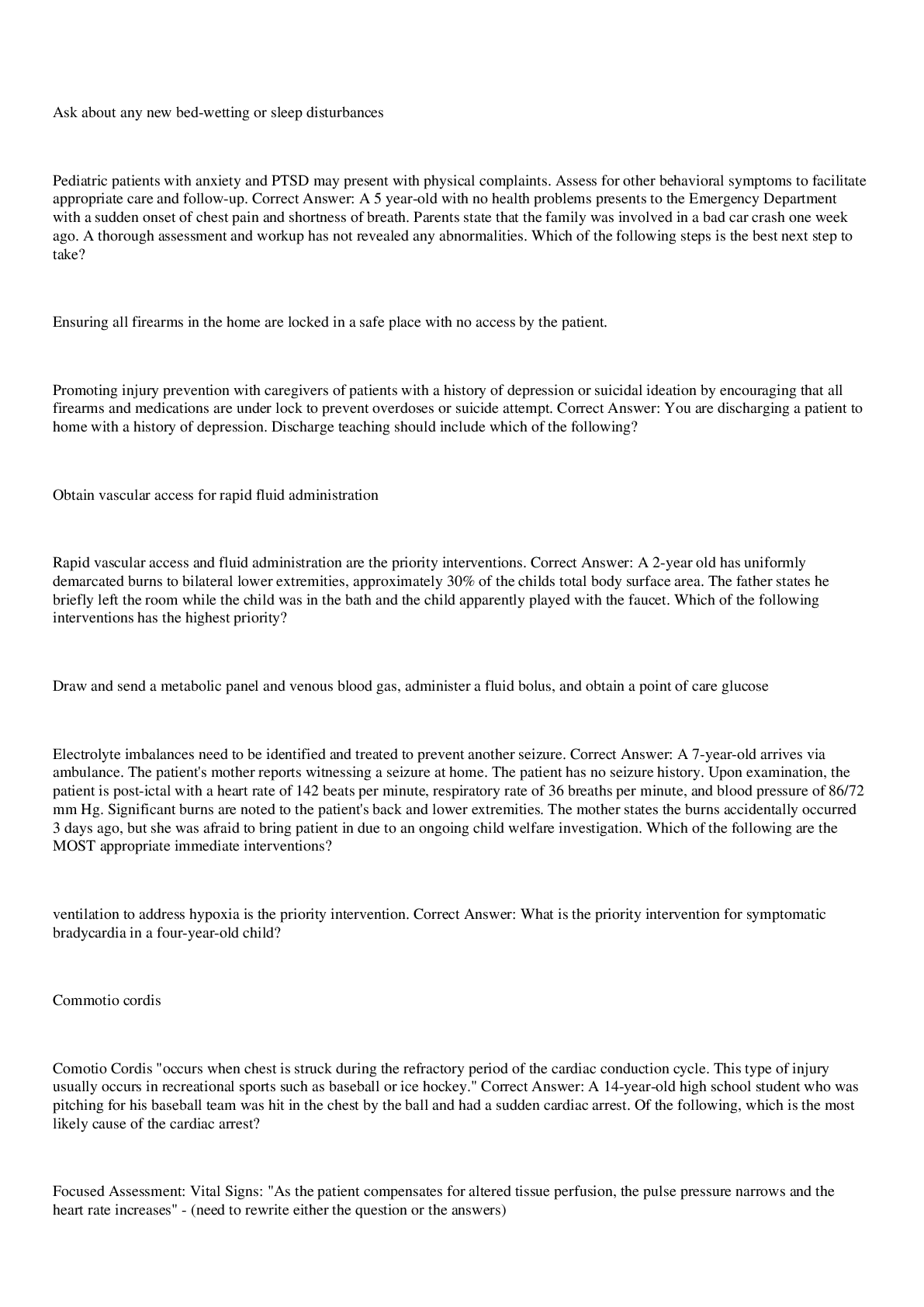
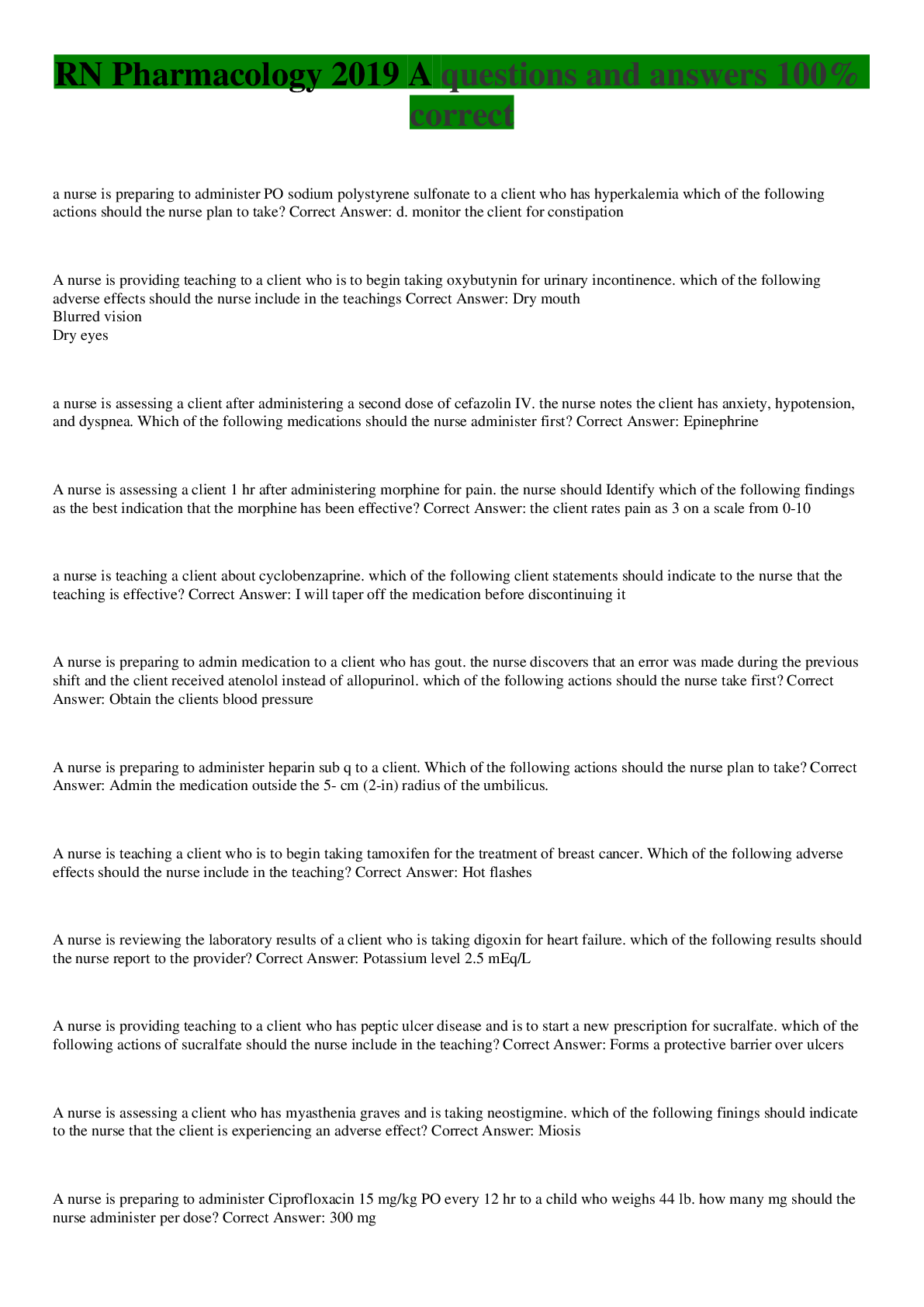
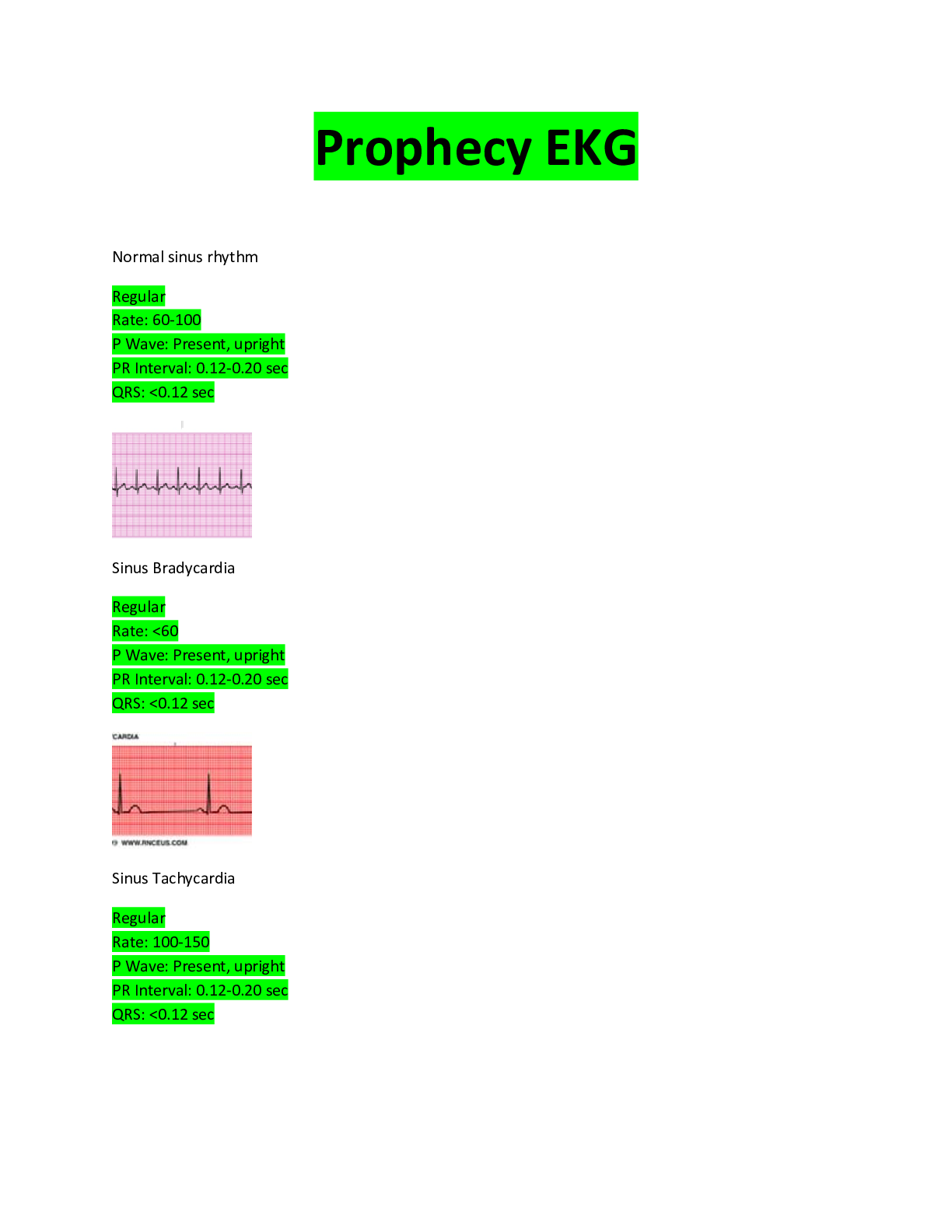


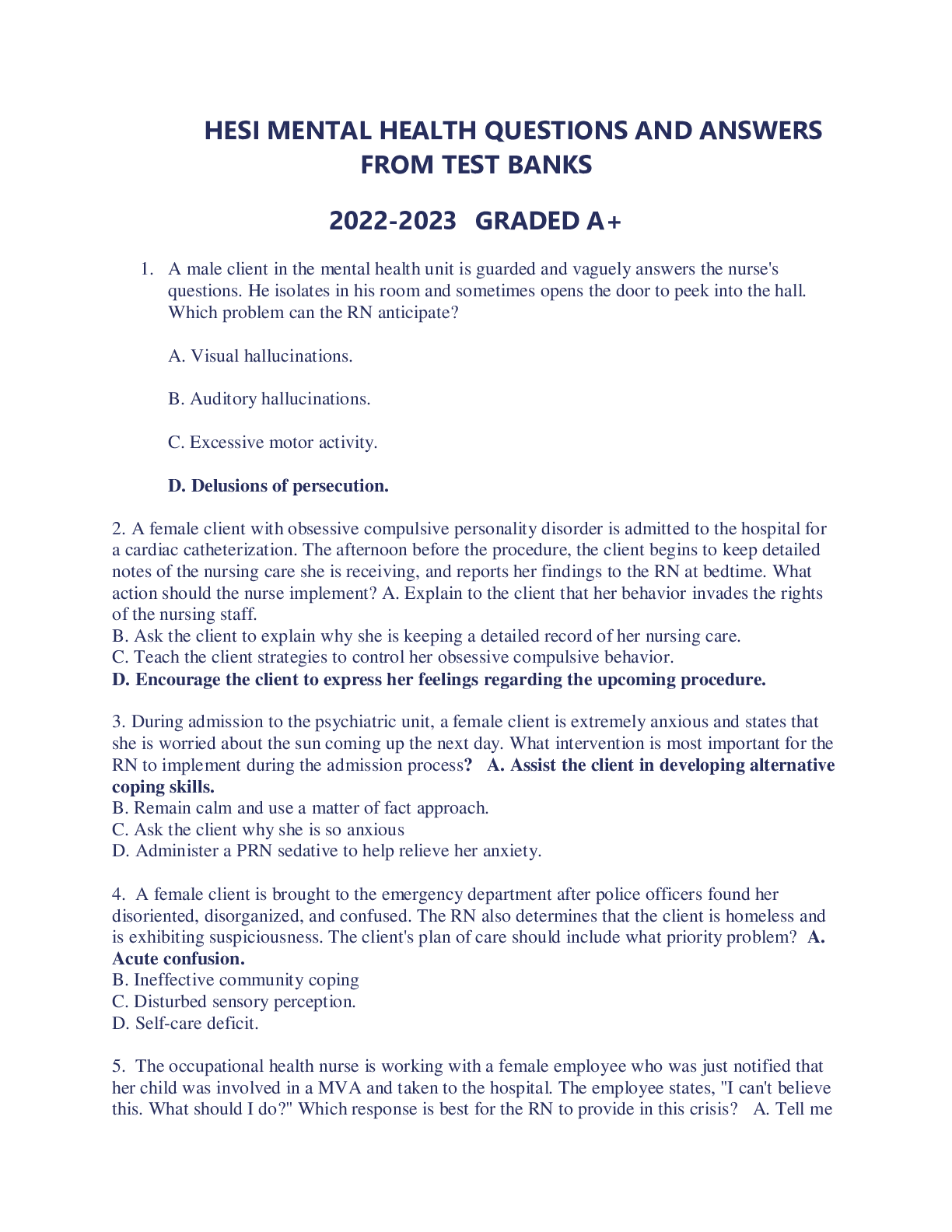
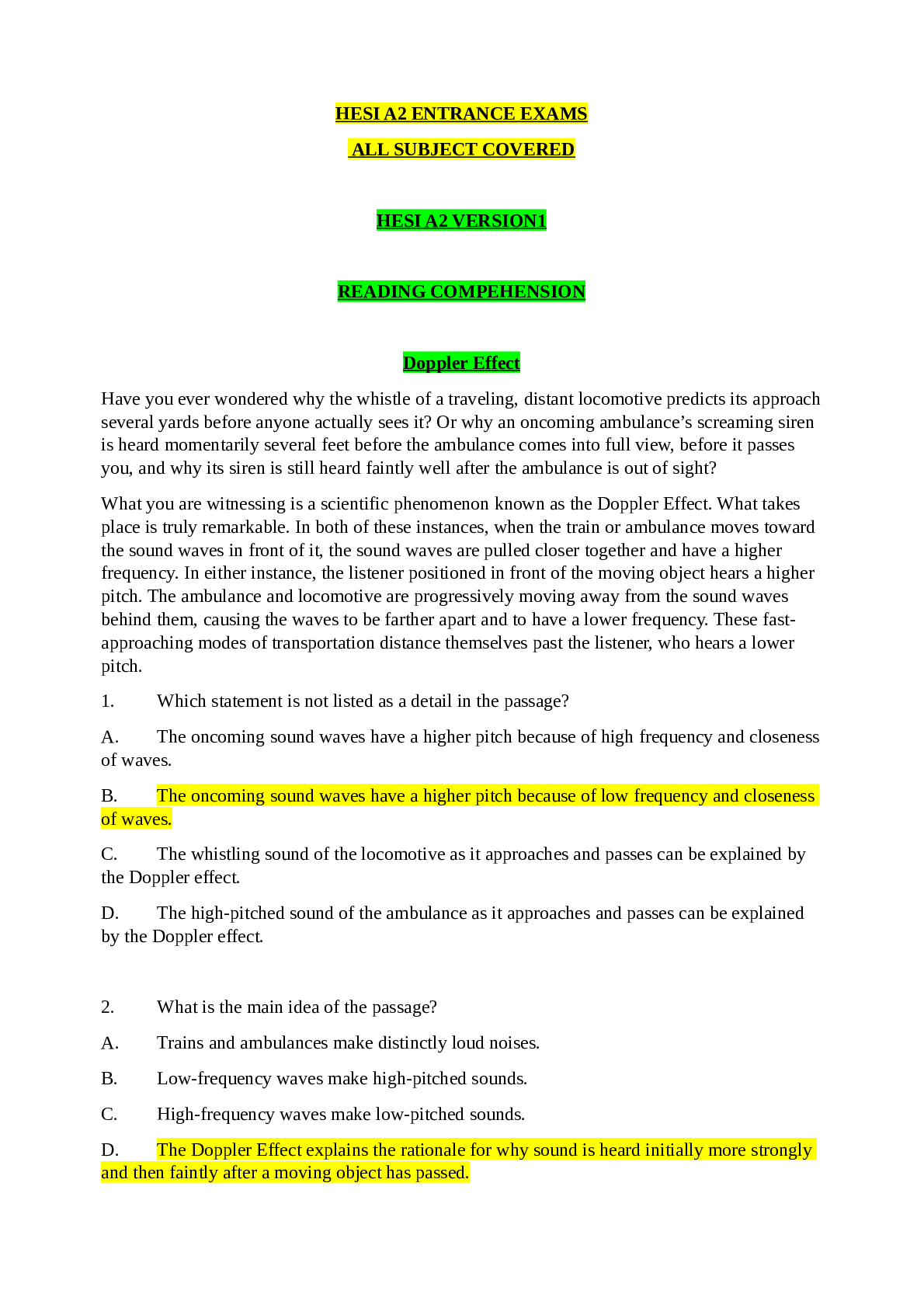

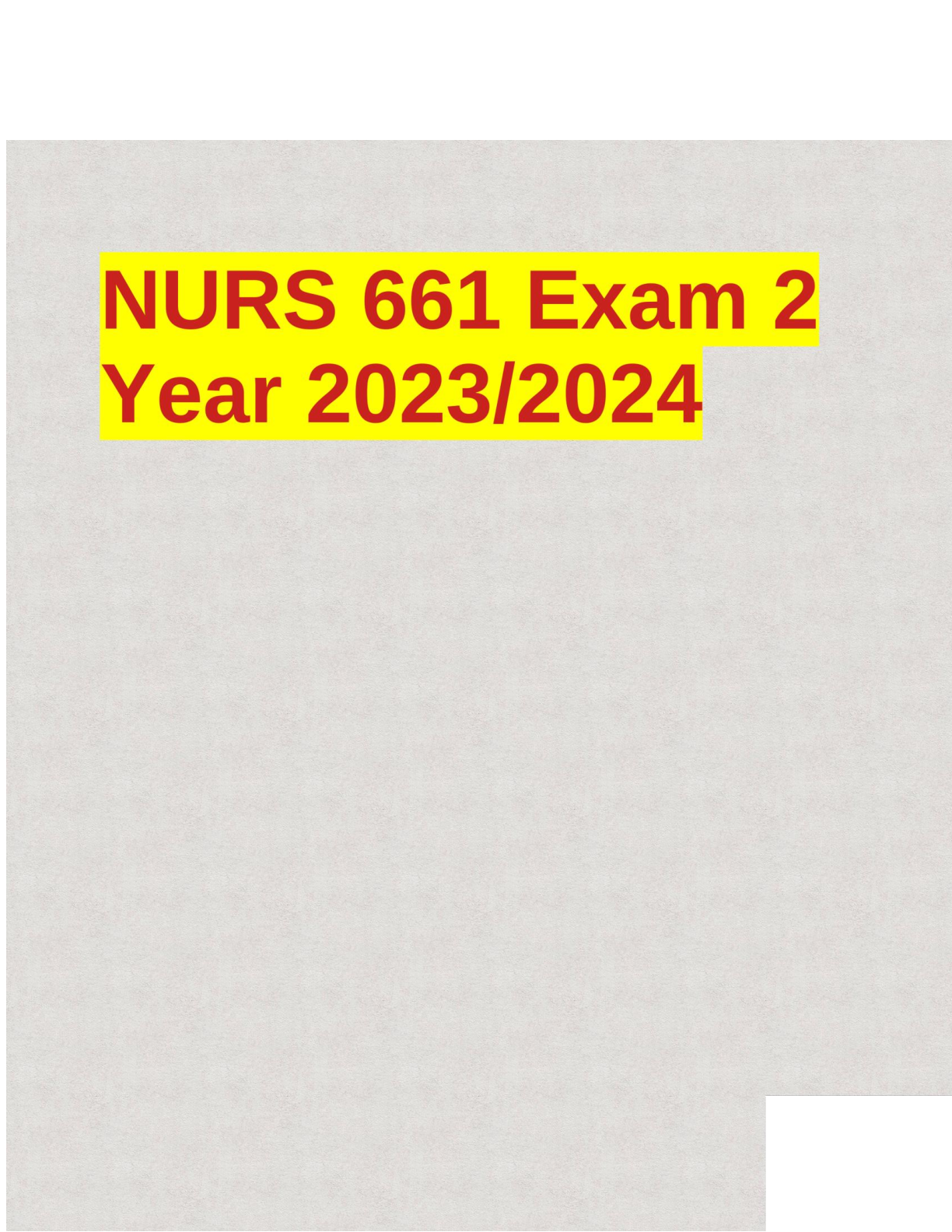
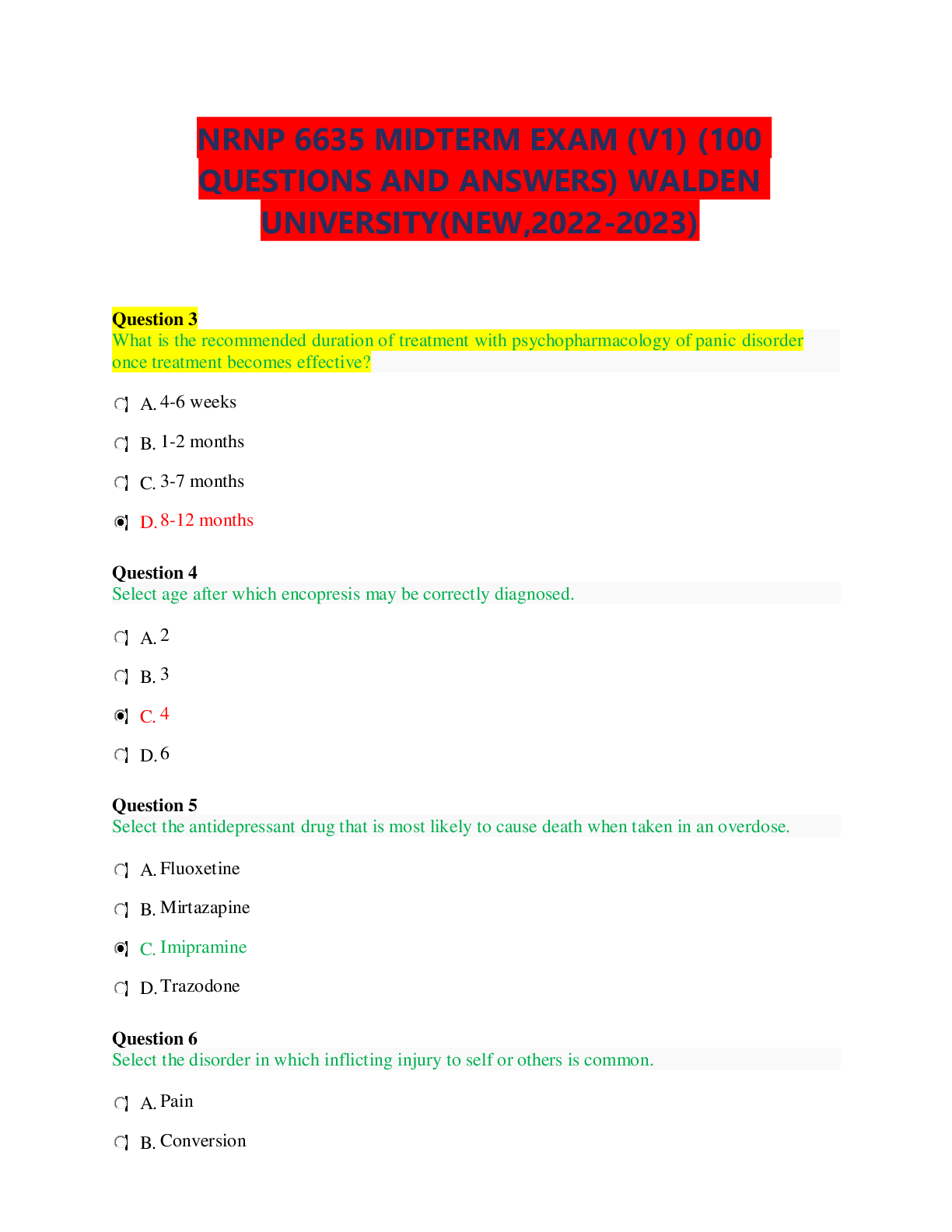

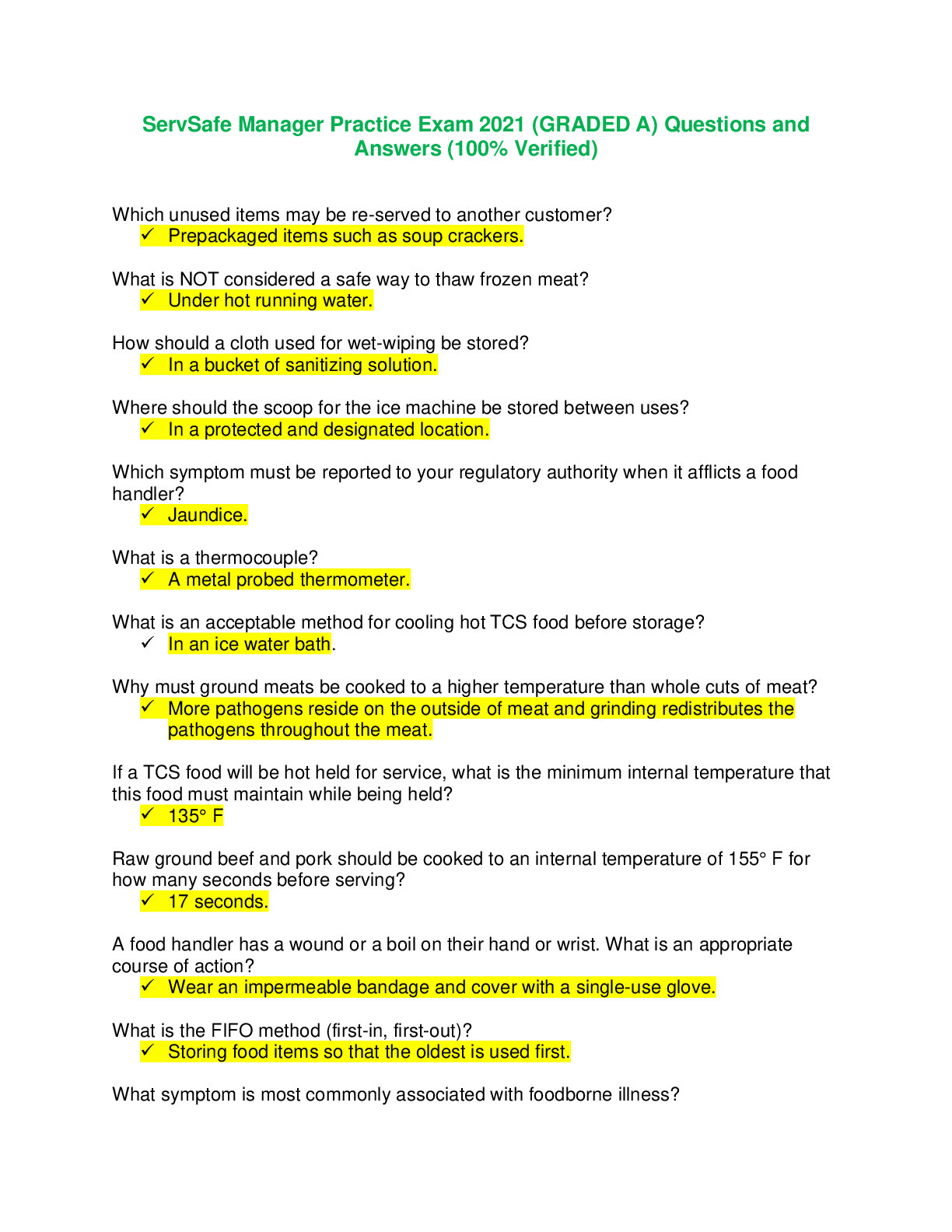
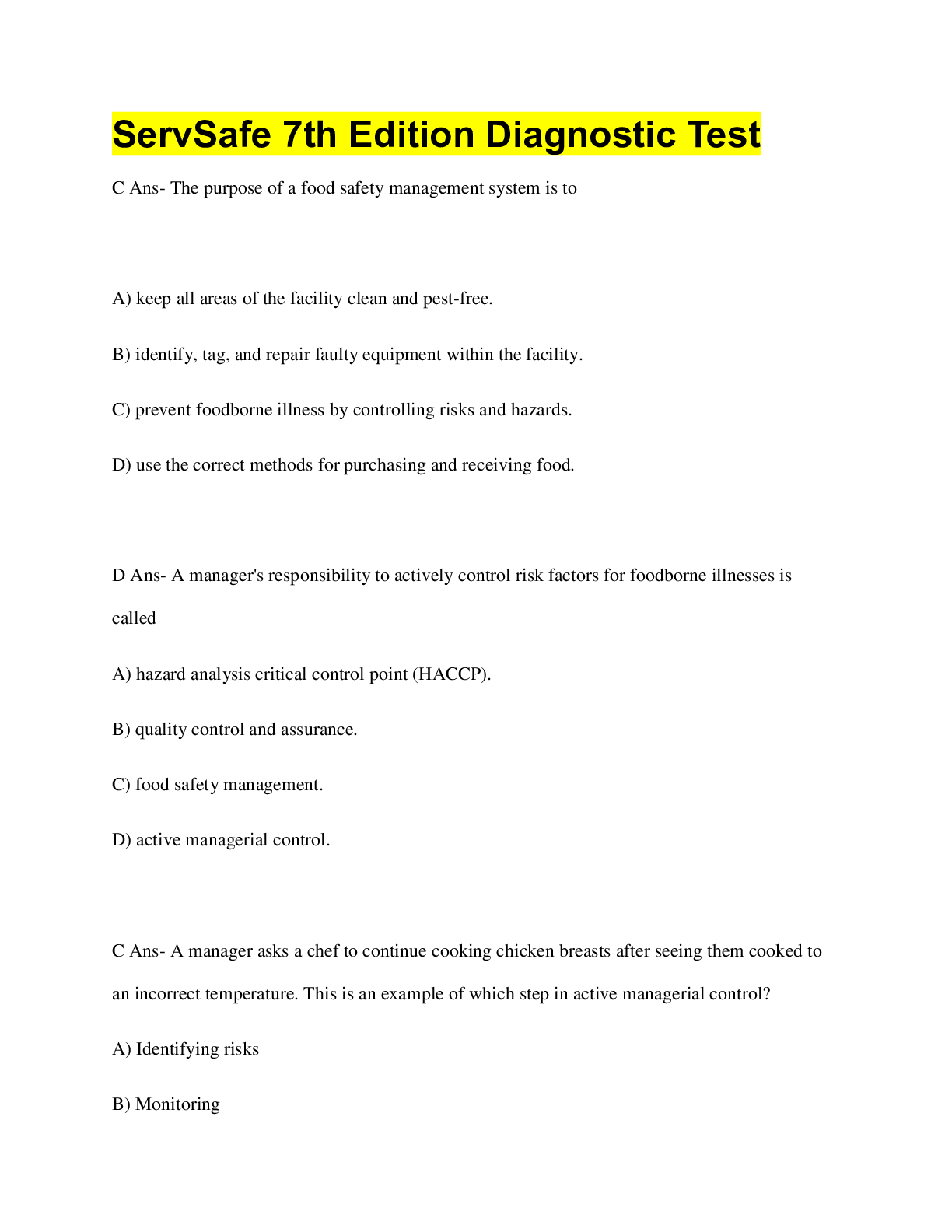
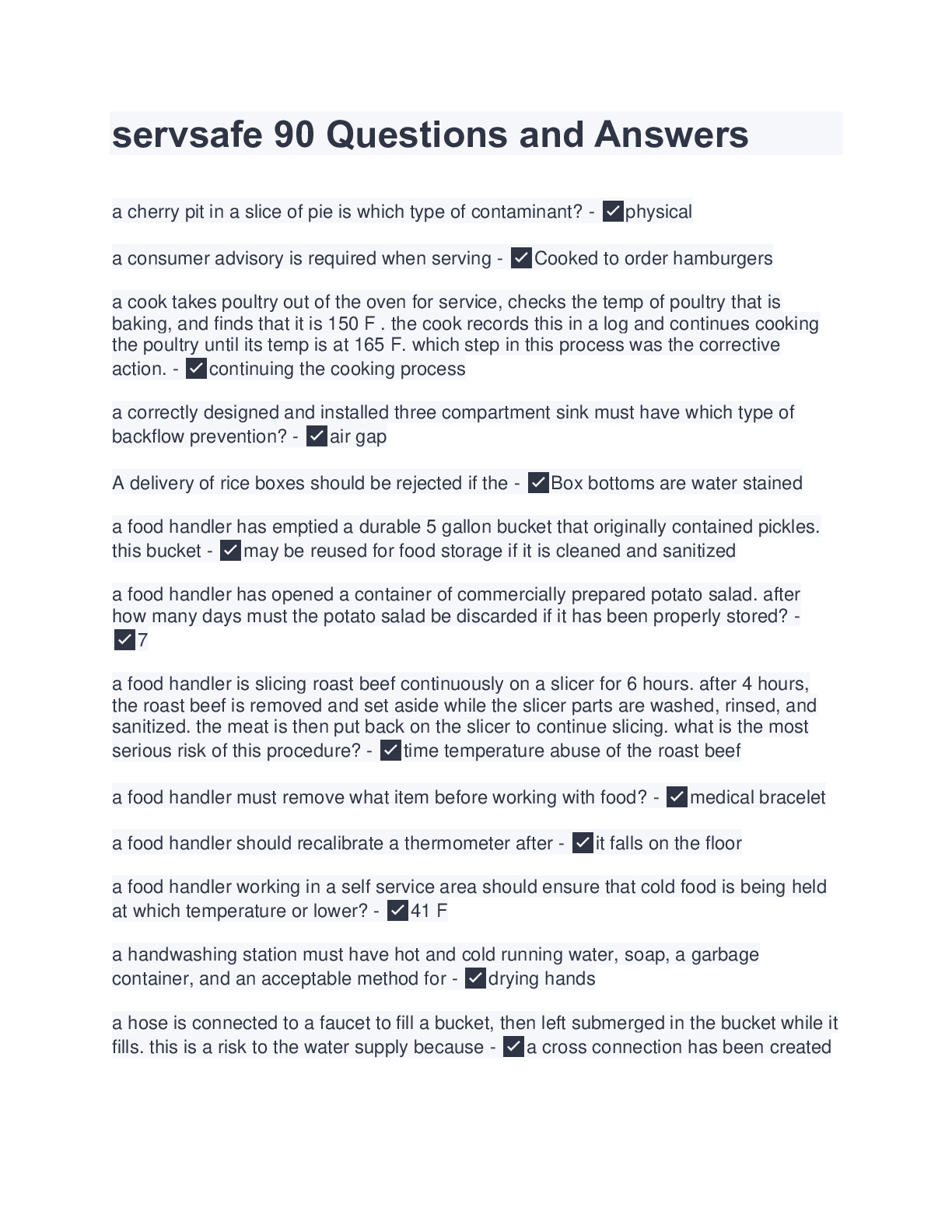
.png)
